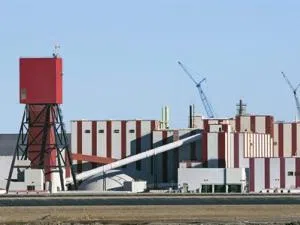
Analyst breaks down PotashCorp layoffs
There's a few ways companies can deal with flat demand: Ride it out until supplies come down and prices pick up, or drive sales growth by cutting prices and snagging your rivals' market share.
With Tuesday's news of layoffs and production cutbacks, economist David Asbridge with NPK Fertilizer Advisory Service said it's clear how PotashCorp plans to weather the downturn in the fertilizer market.
“I think the announcement this morning is showing that their strategy is going to be to hunker down, slow things down a little bit, let the market kind of catch up to them and then continue on with their expansions,” he said, adding that the move didn't come as a surprise to most industry watchers.
“We knew something was going to have to happen up there,” he said.


